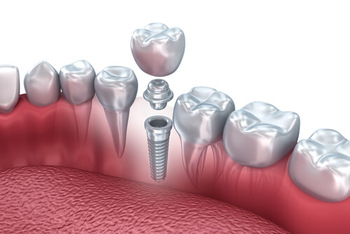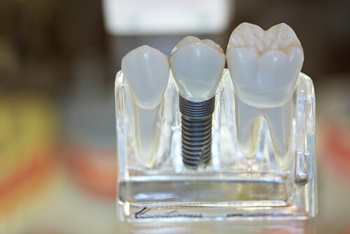When considering dental implants, the choice of location plays a crucial role. While Kuala Lumpur is known for its advanced dental services, Australia stands out in implant dentistry. This blog explores why getting dental implants in Australia might be better than in Kuala Lumpur, Malaysia.
Dental Implant: An Overview
Understanding the fundamentals of dental implants is crucial for anyone considering this form of dental treatment. This expanded section delves into various aspects of dental implants, including their construction, benefits, procedure details, and the considerations before opting for this solution.

What are Dental Implants?
Dental implants are revolutionary advancements in dental care, offering a permanent solution for missing teeth. They are artificial tooth roots, typically made of titanium, surgically positioned into the jawbone beneath the gum line. This process allows the implant dentist to mount replacement teeth or bridges into that area.
The Components of a Dental Implant
A dental implant typically comprises three key components:
- The Implant: This is the titanium screw that serves as a root for the new teeth. Titanium is chosen for its durability and unique property of fusing well with human bone, known as osseointegration.
- The Abutment: A connector, adjusted on top of the dental implant, to hold and support the crowns.
- The Crown: This is the part of the tooth that is visible above the gum line. It is usually made of ceramic or porcelain to mimic the natural teeth.
Benefits of Dental Implants
Dental implants have several benefits over other dental treatments for missing teeth:
- Appearance and Comfort: Implants appear and feel like natural teeth. Because they are created to merge with bone, they become permanent.
- Improved Speech: With poor-fitting dentures, teeth can slip within the mouth, causing you to mumble or slur words. Dental implants allow you to speak without the worry of teeth slipping.
- Easier Eating: Sliding dentures can make eating difficult. Dental implants act like teeth, allowing you to eat your beloved foods confidently and without pain.
- Oral Health Improvement: Unlike a tooth-supported bridge, dental implants don’t require reducing other teeth. More of your teeth are left sturdy, improving long-term oral health.
- Durability and Reliability: Implants are very durable and can last many years. With good upkeep, many implants stay durable for a long time.
- Convenience: Dental implants discard the embarrassing discomfort of removing dentures and the requirement for dental adhesives to keep them in place.
The Dental Implant Procedure
The process for dental implants involves multiple steps and can vary depending on the specific needs and requirements of the patient.
- Initial Assessment: A thorough examination includes X-rays and sometimes 3D images. A comprehensive dental and medical health history is taken. This step is crucial for a successful dental implant procedure.
- Treatment Planning: A detailed treatment plan is formulated based on the assessment. This plan addresses your specific requirements and is curated by professionals trained and experienced in oral surgery and restorative dentistry.
- Tooth Extraction (if necessary): If the tooth to be replaced is still present, it is extracted before implant placement.
- Bone Grafting (if necessary): If there is not enough bone to accommodate the implant, bone grafting may be required. This process involves taking a piece of bone from another part of the body (or using a special bone grafting material) and adjusting it onto the jawbone.
- Implant Placement: The dental implant, made of titanium, is adjusted into the missing tooth’s bone socket. As the jawbone cures, it grows around the implanted metal post, anchoring it strongly in the jaw.
- Healing Time: The healing process can take six weeks to several months. During this time, a temporary tooth replacement treatment can be worn over the implant site.
- Abutment Placement: Once the implant has connected to the jawbone, a small connector post – the abutment – is connected to the post.
- New Teeth Making: Impressions of your teeth are made, and a model of your bite is created. Based on this model, your new tooth or teeth are crafted. This step may take 1 to 2 weeks.
- Attachment of New Teeth: The replacement tooth, called a crown, is bonded to the abutment.
- Aftercare: Regular dental visits are critical after the surgery. Good dental hygiene practices are essential for the longevity of the dental implant.
Considerations Before Opting for Dental Implants
- Patient’s Health: Certain chronic conditions, like diabetes or heart disease, may affect the success of dental implant treatment.
- Bone Density: Adequate bone density is required to support the implant. If bone loss has occurred, bone grafting might be needed.
- Oral Hygiene: Good oral hygiene is needed for the success of the implant.
- Smoking: Smoking can hinder the healing process and may decrease the success rate of implants.
- Cost and Insurance: Dental implants can be higher than other dental treatments. Insurance coverage for dental implants is variable.
- Consultation with Professionals: It is important to consult with dental professionals experienced in implant dentistry.
In conclusion, dental implants offer a permanent, comfortable, and aesthetically pleasing solution for missing teeth. However, the decision to proceed with dental implants should be made after careful consideration and consultation with dental professionals. Regular dental check-ups and maintaining good dental hygiene are crucial for the longevity of the implants.
Dental Implants in Kuala Lumpur
Kuala Lumpur, the bustling capital of Malaysia, is renowned for its medical tourism, with dental services being a significant part. The Malaysian Dental Council ensures high standards; clinics often boast state-of-the-art facilities. The cost of dental implant treatment in Kuala Lumpur can be relatively lower than in other countries.
Why Choose Australia Over Kuala Lumpur for Dental Implants?
When making an informed decision about dental implants, the choice of location is as crucial as the procedure itself. While Kuala Lumpur in Malaysia has emerged as a famous destination for dental tourism, offering affordable services and advanced facilities, Australia presents a compelling case that merits serious consideration. This section delves into why choosing Australia for your dental implant procedure might be preferable to Kuala Lumpur, highlighting aspects such as technology, expertise, regulatory standards, and overall patient care. Whether you’re seeking the most advanced treatment options, highly skilled dental professionals, or comprehensive post-procedure care, understanding these differences is key to making a decision that best suits your requirements and ensures long-lasting dental health.
Advanced Technology and Techniques
Australia’s reputation in dental implantology is bolstered by its commitment to advanced technology and innovative techniques. This commitment ensures patients receive care that is not only cutting-edge but also tailored to individual needs. Let’s explore how these advancements make Australia a preferred destination for dental implants.
Australian dental clinics are equipped with the latest technology in implant dentistry. This includes 3D imaging and computer-guided implant surgery, which allows for precise planning and placement of dental implants. Using such advanced imaging techniques ensures a higher success rate and decreases the risk of complications.
One of the standout technologies is computer-guided implant surgery. This technique involves using detailed 3D models of a patient’s jawline and teeth to plan the implant procedure. Dentists can simulate the surgery virtually, allowing for meticulous pre-surgical planning. This precision leads to less invasive procedures, reduced recovery times, and more predictable outcomes.
Innovative Implant Techniques
Australian implant dentists are trained in traditional implantology and the latest techniques, including immediate load implants and mini implants. These innovations offer quicker recovery times and can be a solution for patients told they don’t have enough bone for traditional implants.
Immediate Load Implants, also known as same-day implants, this technique allows the adjustment of a temporary tooth during the same appointment as your implant placement. This is particularly advantageous for patients who want to avoid the embarrassment of a missing tooth during the healing process.
Mini implants are smaller and require less bone structure for placement, making them a viable option for patients with significant bone loss who cannot undergo a bone grafting procedure.
Enhanced Patient Comfort and Safety
The focus on technology extends to patient comfort and safety as well. Australian dental clinics use advanced pain management techniques, ensuring a comfortable patient experience. Moreover, the stringent sterilisation protocols and use of high-grade materials minimise the risk of infection.
From local anaesthetics to sedation dentistry, Australian dental clinics offer various options to ensure patients are comfortable and anxiety-free during their procedures.
Australian dental clinics adhere to rigorous sterilisation and safety protocols. Autoclave sterilisation and single-use instruments, wherever possible, ensure the highest patient safety and hygiene standards.
Ongoing Research and Development
Australia is also at the forefront of research and development in implant dentistry. Australian dental professionals are often involved in global studies and trials, bringing the latest knowledge and practices to their clinics.
Many Australian dental professionals collaborate with international experts and institutions, staying abreast of global advancements and bringing these insights into their practice.
Highly Trained Dentists

The success of dental implant procedures not only hinges on advanced technology but also significantly on the expertise of dentists. Australia’s dental sector is renowned for its highly trained dentists, especially in implant dentistry. These professionals are adept at handling various complex scenarios, from placing an artificial tooth root to comprehensive restorative procedures. Let’s delve into the aspects that set Australian dentists apart.
Australian dentists undergo extensive education and rigorous training. Post their general dental education, many pursue implant dentistry, which includes in-depth study and practical experience in inserting artificial tooth roots and performing related surgical procedures.
Many dentists in Australia hold expert qualifications, including postgraduate degrees in implantology. This level of education ensures that they are not just general dentists but experts who understand the complexities of dental implant treatments.
Implant dentistry is ever-evolving, and Australian dentists are committed to continuous learning. This includes attending international conferences, participating in workshops, and keeping up with the latest research and techniques in implant dentistry.
Australian dentists often hold memberships in esteemed professional bodies. This not only ensures they adhere to high professional standards but also gives them access to ongoing education and networking with other experts in their field. In an Australian dental clinic, you’ll find dentists with extensive experience performing advanced implant procedures. They are skilled in handling complex cases, such as those requiring bone grafts or customised artificial tooth root placements.
The experience of handling various cases, from straightforward single tooth replacements to more complex full arch restorations, makes Australian dentists particularly adept at tailoring their approach to each patient’s unique needs. What truly distinguishes an Australian dentist is the patient-centric approach. They not only focus on the technical aspects of implant surgery but also on the comfort, anxiety, and overall experience of their patients.
Consultation and Communication
Effective communication forms the cornerstone of their practice. From the initial consultation, they ensure patients are fully informed about the procedure, what it entails, and what can be expected regarding results and recovery.
The calibre of dentists in Australia significantly contributes to the high success rates of dental implant procedures. Their combination of in-depth training, ongoing professional development, vast experience, and a patient-centric approach ensures that individuals seeking dental implant services receive technical expertise and compassionate and comprehensive care. When considering a dental implant, particularly for something as intricate as an artificial tooth root placement, the expertise of Australian dentists is a critical factor to consider.
Regulated Dental Services
The realm of dental services in Australia is distinguished by its rigorous regulation and high standards, a crucial benchmark when considering procedures as intricate as dental implant placement. This regulatory environment ensures that dental care, from initial consultation to complex surgical procedures, is conducted professionally and adheres to the highest standards. Let’s explore how these regulations impact the quality of dental services in Australia, particularly compared to standards set by organisations like the Malaysian Dental Association and Council.
In Australia, dental services are regulated by a comprehensive framework designed to ensure the highest patient care and safety level. This involves strict adherence to guidelines set by authoritative bodies, paralleling the standards of organisations such as the Malaysian Dental Council.
These regulatory bodies oversee all aspects of dental practice, including the qualifications of dental professionals, the standards of dental clinics, and the protocols for dental surgery and bone grafting. Their oversight guarantees that only qualified professionals can perform complex procedures like implant placement.
Standards of Dental Clinics
Australian dental clinics are required to meet stringent criteria, which cover everything from the qualifications of the dental staff to the equipment and hygiene standards. This ensures that patients receiving treatment for missing teeth or undergoing bone grafting procedures do so in an environment that prioritises their health and safety.
The regulations extend to the facilities and equipment used in these clinics. State-of-the-art technology is a standard requirement, especially for intricate procedures such as dental implant placement, ensuring precision and minimising risks.
Protocols for Dental Procedures
In Australia, dental procedures, especially those involving surgery, follow defined protocols to ensure patient safety and optimal outcomes. This includes comprehensive pre-surgical assessments, detailed planning for implant placement, and meticulous aftercare.
Procedures like dental surgery and bone grafting are conducted with a high degree of rigour. Australian dental professionals are known for their meticulous approach, ensuring each procedure step is performed with precision and care.
Comprehensive Aftercare
The journey to an ideal smile with dental implants continues after the implant placement or the fitting of the prosthetic teeth. Comprehensive aftercare is a crucial part of this journey, particularly in ensuring the long-term success and health of the implants. Australian dental clinics excel in providing thorough and patient-focused aftercare, which is pivotal for maintaining dental implants’ functionality and aesthetics. Let’s delve into the aspects that make the aftercare services in Australia stand out.
After completing the dental implant procedure, Australian dental clinics prioritise consistent monitoring. This involves scheduled follow-up visits to ensure that the implants are integrating well and that there are no complications. Regular check-ups allow dental professionals to monitor the healing process and the integration of the implant with the jawbone. These appointments are key to identifying any issues early on and addressing them promptly.
A critical aspect of aftercare is maintaining oral hygiene. Australian dental clinics provide patients with tailored hygiene programs to protect the implants and the natural teeth. Patients receive personalised instructions on how to care for their implants, including the right techniques for brushing, flossing, and using interdental brushes. This guidance is crucial for preventing infections and ensuring the longevity of the implants.
Dental implants require ongoing maintenance, similar to natural teeth. Australian dental clinics emphasise the importance of long-term care, which includes regular professional cleanings and potential adjustments of the implants. Regular professional cleanings are essential to remove plaque and tartar build-up that can affect the health of the implants. These cleanings are usually more thorough than standard teeth cleaning.
Managing Potential Complications
While dental implants have a high success rate, complications can arise. Australian dental clinics can manage potential issues, offering prompt and effective treatments.
Whether it’s minor discomfort or more significant issues like implant loosening or gum infections, Australian dental clinics respond immediately to address and resolve these complications.
Patient Education
Educating patients about their dental implants and overall oral health is a cornerstone of the aftercare provided in Australian clinics. This education helps patients make ideal decisions about their oral care.
Patients are educated on the importance of maintaining good oral health and how it directly impacts the success of their dental implants. This includes understanding the role of lifestyle choices, such as diet and smoking, on oral health.
In conclusion, comprehensive aftercare is a critical component of the dental implant process, and Australian dental clinics excel in providing this service. Their approach focuses on the immediate post-operative phase and extends to long-term care and maintenance of the implants. This thorough and patient-centric aftercare ensures that patients enjoy the full advantages of their dental implants for years to come, maintaining their smile and overall oral health.
Cost-Effectiveness

When considering dental implants, cost-effectiveness plays a pivotal role in decision-making. While the initial investment for dental implants in Australia might appear higher than in other countries like Malaysia, it’s important to assess their long-term value and benefits. This section explores why dental implants in Australia are:
- A cost-effective choice.
- Considering the quality of care.
- Long-term outcomes.
- Overall impact on oral health.
The initial dental implant cost in Australia encompasses not just the implant itself but also the expertise of highly trained dental experts, state-of-the-art technology, and comprehensive aftercare. This holistic approach ensures a higher success rate and longevity of the implants. Australian dental implants are made from high-quality materials designed to last many years and, in many cases, a lifetime. This durability reduces the need for replacements or frequent repairs, offering significant savings over time.
The advanced technology used in Australian dental clinics, such as precise imaging and computer-guided implant placement, leads to fewer complications and a reduced need for corrective procedures, which can be costly. The precision of these advanced technologies results in predictable outcomes, minimising the risk of future expenses related to implant failures or complications.
Many Australian dental clinics offer payment plans and financing options, making the cost of dental implants more manageable. Some health insurance plans may also cover a section of the costs, further enhancing their affordability. Patients are advised to explore all financial options, including insurance coverage and clinic-specific payment plans, to make the treatment more accessible.
Conclusion
Choosing between dental implants in Kuala Lumpur and Australia depends on various factors, including cost, quality of care, and individual needs. While Kuala Lumpur offers affordability, the advanced technology, highly skilled dentists, and regulated services in Australia present a compelling case for considering dental implants there.
Remember, whether it’s implant dentistry, tooth whitening, or any other dental treatment, the key is choosing a dental clinic and a dentist that matches your specific requirements and expectations. Always consult a professional to make an informed decision about your dental implant procedure.
If you’re considering dental implants and want to explore your options with a team that upholds the highest standards in dental care, Glenferrie Dental is ready to guide you through this journey. Their team of dentists is committed to providing personalised care that aligns with your dental needs and overall health goals.
For more information or to schedule a consultation, don’t hesitate to contact Glenferrie Dental, Dentist Hawthorn at (03) 9818 1930. Take the first step towards a healthier, happier smile with a team you can trust.
References:
https://www.news-medical.net/health/Dental-Implant-Techniques.aspx
https://www.medicinenet.com/dental_implants/article.htm
